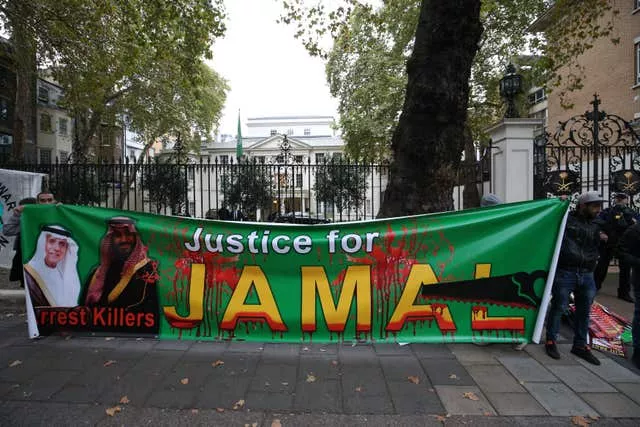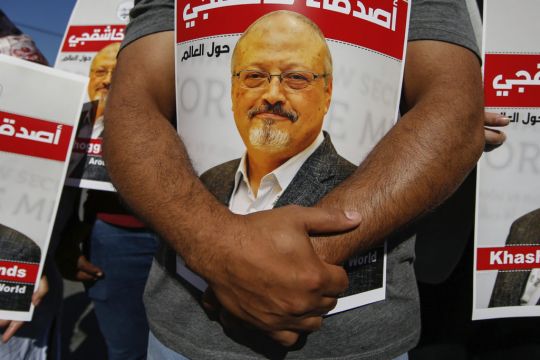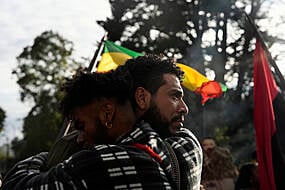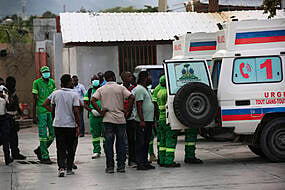The Turkish prosecutor in the case against 26 Saudi nationals charged in the slaying of journalist Jamal Khashoggi made a surprise request that their trial in absentia be suspended and the case transferred to Saudi Arabia, raising fears of a possible cover-up.
The panel of judges made no ruling on the prosecutor’s request but said a letter would be sent to Turkey’s Justice Ministry seeking its opinion on the possible transfer of the file to Saudi judicial authorities, the state-run Anadolu Agency reported.
The trial was adjourned until April 7.
The development comes as Turkey has been trying to normalise its relationship with Saudi Arabia, which hit an all-time low following Mr Khashoggi’s killing in October 2018.

Turkish Foreign Minister Mevlut Cavusoglu said in an interview on Thursday that Saudi authorities were more cooperative on judicial issues with Turkey, but did not elaborate.
In arguing for the transfer, the prosecutor told the court that the Saudi chief public prosecutor’s office requested the Turkish proceedings be transferred to the kingdom in a letter dated March 13, and that international warrants issued by Ankara against the defendants be lifted, according to the private DHA news agency.
The prosecutor said that because the arrest warrants cannot be executed and defence statements cannot be taken, the case would remain inconclusive in Turkey.
Amnesty International urged Turkey to press ahead with the trial, saying if it is transferred to Saudi Arabia, Turkey will be “knowingly and willingly sending the case to a place where it will be covered up”.
Moving Mr Khashoggi’s trial to Saudi Arabia would provide a diplomatic resolution to a dispute that represented the wider troubles between Ankara and the kingdom since the 2011 Arab Spring.
Turkey supported Islamists as the uprisings took hold, while Saudi Arabia and its ally the United Arab Emirates sought to suppress such movements for fear of facing challenges to their autocratic governments.
Meanwhile, Turkey sided with Qatar in a diplomatic dispute that saw Doha boycotted by Bahrain, Egypt, Saudi Arabia and the UAE.
Mr Khashoggi disappeared on October 2, 2018, after entering the Saudi consulate in Istanbul, seeking documents that would allow him to marry Hatice Cengiz, a Turkish national who was waiting outside the building. He never emerged.
Turkish officials allege that the Saudi national, who was a United States resident, was killed and then dismembered inside the consulate.
His body has not been found. Prior to his killing, Mr Khashoggi had written critically of Saudi Arabia’s crown prince in columns for the Washington Post.
Turkish authorities said he was killed by a team of Saudi agents. Those on trial in absentia include two former aides of the prince.
Saudi officials initially offered conflicting accounts concerning the killing, including claims that Mr Khashoggi had left the consulate building unharmed.
But amid mounting international pressure, they stated that Mr Khashoggi’s death was a tragic accident, with the meeting unexpectedly turning violent.
Turkey decided to try the defendants in absentia after Saudi Arabia rejected Turkish demands for their extradition.
The slaying had sparked international condemnation and cast a cloud of suspicion over Saudi Crown Prince Mohammed bin Salman. Western intelligence agencies, as well as the US Congress, have said that an operation of this magnitude could not have happened without his knowledge.







